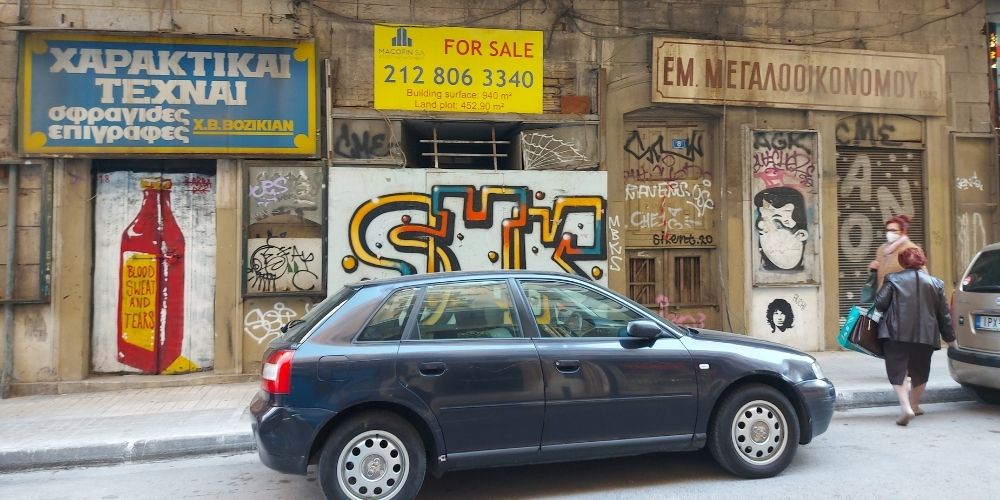
About Decarbonizing Europe
What does the Recovery and Resilience Facility entail?
The European Commission has made available an amount of 723.8 billion euros
to combat the consequences of the corona crisis and make Europe greener, cleaner, and future-proof. All member states have the opportunity to submit plans for disbursement from this Recovery and Resilience Facility.
Who is participating in the Recovery and Resilience Facility?
All the member states of the European Union. All member states? No, The Netherlands has not submitted plans as yet. Although, it became public knowledge at the end of January that hard work is going on behind the scenes in the Netherlands to secure some of those European billions.
What do the member states have to spend the money on?
At least 37 percent of the funding should be used for making their countries more sustainable and 20 percent for digitalization. In addition, there are also other key points:
– Smart, sustainable and inclusive growth
– Social and territorial cohesion
– Public health, economic, social, and institutional resilience
– Policy for future generations
What else is happening?
Apart from that, the EC has identified several so-called flagship areas:
– Power up
– Renovate
– Recharge and Refuel
– Connect
– Modernise
– Scale-up
– Reskill and upskill
What is Innovation Origins planning to do?
Over the next few months, we will be focusing on the implementation of these plans. We will be outlining what each country is doing to reduce CO₂ emissions, and we will be reporting on innovative projects. Infographics will allow you to compare the member states’ efforts with each other.
Since the crisis of the years 2010-2015, we haven’t really heard much about Greece. During those years, the country was hit by a currency crisis, which almost resulted in Athens pulling out of the Eurozone. Greeks call that period the ‘Great Crisis’, and they are still feeling the aftermath.
Last month (April 2022), it was announced that Greece had paid off its €32 billion debt to the International Monetary Fund ahead of schedule. Apparently, things are heading in the right direction. Nevertheless, Greece still has EU loans amounting to almost 53 billion euros are still outstanding. The national debt of around 200 percent also tells it like it is. During Innovation Origins’ visit to Athens, we were struck by the level of poverty: widespread homelessness, poor infrastructure, run-down housing.

Loan components
More important than this subjective vision of today are the plans for the future. The Greek corona Recovery and Resilience Plan (RRP) has received the approval of the European Commission. In July 2021, the council gave the green light to the plan, which totals over 30 billion euros. A month later, Athens received 4 billion euros in pre-financing.
Notable is the fact that while Greece is receiving 17.8 billion in subsidies from the corona recovery fund, it is also receiving 12.7 billion in loans. Quite a few countries are opting out of the loan component of the RRP. Greece, however, is not, as it sees it as a favorable means of financing from the private sector. In relative terms (as measured by Gross Domestic Product), Greece is the largest recipient of corona recovery funds within the European Union.
Climate change agenda
The fund is coming at just the right time. “Until recently, the political debate has been dominated by economic and social issues stemming from Greece’s ‘Great Crisis,'” says Victoria Tsitsoni, Economic Policy Analyst at the World Wildlife Fund (WWF). The Greek division of the WWF is monitoring the Greek efforts critically. In December 2019, shortly before the pandemic outbreak, the government released its first national energy and climate plan. In it, a climate change agenda was adopted to act as a catalyst for new investment and the creation of jobs.

The first results are already evident. For example, the sun-rich country is generating solar power at an accelerated rate. The increase in installed capacity went from 2.3 GW to 3.6 GW (December 2021) in less than two years. However, heavy overloading of the electricity grid is a problem. Future grid infrastructure needs to lead to more development of sustainable energy sources.
Greece is continuing on the path it has taken in its application for European corona funds. More than one-third of the fund (38 percent) can be traced back to measures that support climate targets. These include investments in the modernization of the electricity grid and the bolstering of the support scheme for producers of renewable energy sources. Furthermore, the plan supports municipalities that want to strengthen the climate resilience of urban areas.
Other measures include support for a national reforestation program and a comprehensive strategy to mitigate flooding, among other things.
Greek housing stock
Like so many Mediterranean countries, such as Italy and Cyprus, Greece is primarily deploying its corona funds to make homes more energy efficient and expand mobile transport infrastructure. The RRP will be used to finance renovations of more than 100,000 buildings which will reduce their energy consumption by at least 30 percent by 2025. That’s equivalent to about 20 percent of Greece’s housing stock. Perhaps that could be made more comprehensive.
In addition, the Greek government has adopted a sweeping regulatory framework to promote the installation and operation of electric vehicle charging stations throughout Greece, putting the country on track to meet its goal of having a 30 percent proportion of electric vehicles in the domestic market by 2030. Today, Greece is still largely unplugged.

Do No Significant Harm
Greece’s WWF is very critical on one issue when it comes to whether RRP investments are actually all that ‘green’. The organization sees a problem that is common across the European Union. “We are concerned that investments and projects funded from the RRP may be falsely labelled as ‘green’ or may harm the EU’s environmental targets,” says Tsitsoni. “This is due to a lack of clear and strict rules of good governance and verifiable systems for monitoring compliance with the sustainability targets.”

The Greek WWF, along with other environmental organizations, has consequently been pressing Brussels to enforce the rules since 2021. According to the Greeks, the principle of ‘Do No Significant Harm'(aka DNSH) is the root of the problem. What is meant by that principle is that investments within the framework of the RRF (and other funds) should not cause significant harm to the environment.
“How this principle is applied in practice is missing the point of the recovery fund.” An example is the investments being made in gas infrastructure, which Greece is also planning to make. “These are investments that are not in line with the Paris Climate Agreement (2015, ed.). Yet such investments are still eligible for a loan within the RRF. This is a flawed approach, as a new gas infrastructure could put the Greek energy system on a high carbon intensity path for many decade to come,” Tsitsoni says.
NextGeneration EU
The corona crisis is one of the biggest challenges of our time. The European Union, through NextGenerationEU – the largest recovery plan ever at €806.9 billion – aims to help its member states emerge stronger from the crisis. The Recovery and Resilience Facility (RRF) is at the heart of this plan (€723.8 billion).
The RRF has two goals: first, to pull the European economy out of the recession caused by the corona pandemic. At the same time, it is designed to give an impetus to important investments for the future and measures for rolling out reforms.
All 27 member states have submitted plans. Whether all the money is actually disbursed depends on a final assessment of the projects. For example, countries must spend at least 37 percent of their budgets on climate action and 20 percent on digitalization.
Photos: Children during the annual parade on the Greek National Day (first image), street scene in Athens, Victoria Tsitsoni of the WWF, trolley bus in Athens, poster with EU logo on the Acropolis.
Support us!
Innovation Origins is an independent news platform that has an unconventional revenue model. We are sponsored by companies that support our mission: to spread the story of innovation. Read more.
At Innovation Origins, you can always read our articles for free. We want to keep it that way. Have you enjoyed our articles so much that you want support our mission? Then use the button below:



